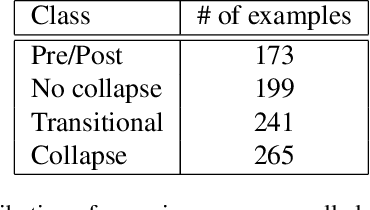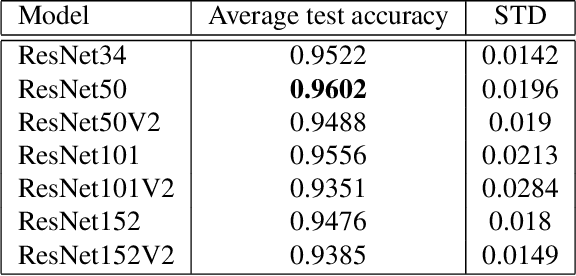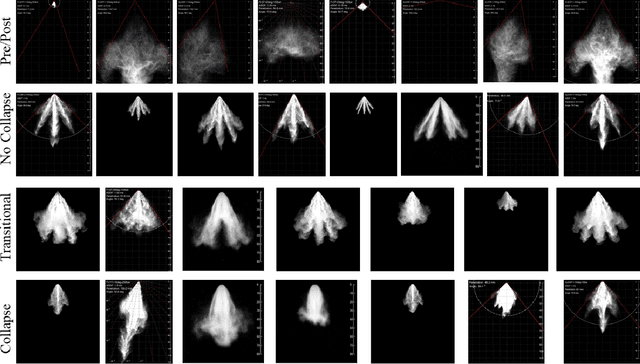Hongjiang Li
Towards Accurate and Robust Classification in Continuously Transitioning Industrial Sprays with Mixup
Jul 20, 2022



Abstract:Image classification with deep neural networks has seen a surge of technological breakthroughs with promising applications in areas such as face recognition, medical imaging, and autonomous driving. In engineering problems, however, such as high-speed imaging of engine fuel injector sprays or body paint sprays, deep neural networks face a fundamental challenge related to the availability of adequate and diverse data. Typically, only thousands or sometimes even hundreds of samples are available for training. In addition, the transition between different spray classes is a continuum and requires a high level of domain expertise to label the images accurately. In this work, we used Mixup as an approach to systematically deal with the data scarcity and ambiguous class boundaries found in industrial spray applications. We show that data augmentation can mitigate the over-fitting problem of large neural networks on small data sets, to a certain level, but cannot fundamentally resolve the issue. We discuss how a convex linear interpolation of different classes naturally aligns with the continuous transition between different classes in our application. Our experiments demonstrate Mixup as a simple yet effective method to train an accurate and robust deep neural network classifier with only a few hundred samples.
Insight from NLP Analysis: COVID-19 Vaccines Sentiments on Social Media
Jun 08, 2021



Abstract:Social media is an appropriate source for analyzing public attitudes towards the COVID-19 vaccine and various brands. Nevertheless, there are few relevant studies. In the research, we collected tweet posts by the UK and US residents from the Twitter API during the pandemic and designed experiments to answer three main questions concerning vaccination. To get the dominant sentiment of the civics, we performed sentiment analysis by VADER and proposed a new method that can count the individual's influence. This allows us to go a step further in sentiment analysis and explain some of the fluctuations in the data changing. The results indicated that celebrities could lead the opinion shift on social media in vaccination progress. Moreover, at the peak, nearly 40\% of the population in both countries have a negative attitude towards COVID-19 vaccines. Besides, we investigated how people's opinions toward different vaccine brands are. We found that the Pfizer vaccine enjoys the most popular among people. By applying the sentiment analysis tool, we discovered most people hold positive views toward the COVID-19 vaccine manufactured by most brands. In the end, we carried out topic modelling by using the LDA model. We found residents in the two countries are willing to share their views and feelings concerning the vaccine. Several death cases have occurred after vaccination. Due to these negative events, US residents are more worried about the side effects and safety of the vaccine.
 Add to Chrome
Add to Chrome Add to Firefox
Add to Firefox Add to Edge
Add to Edge